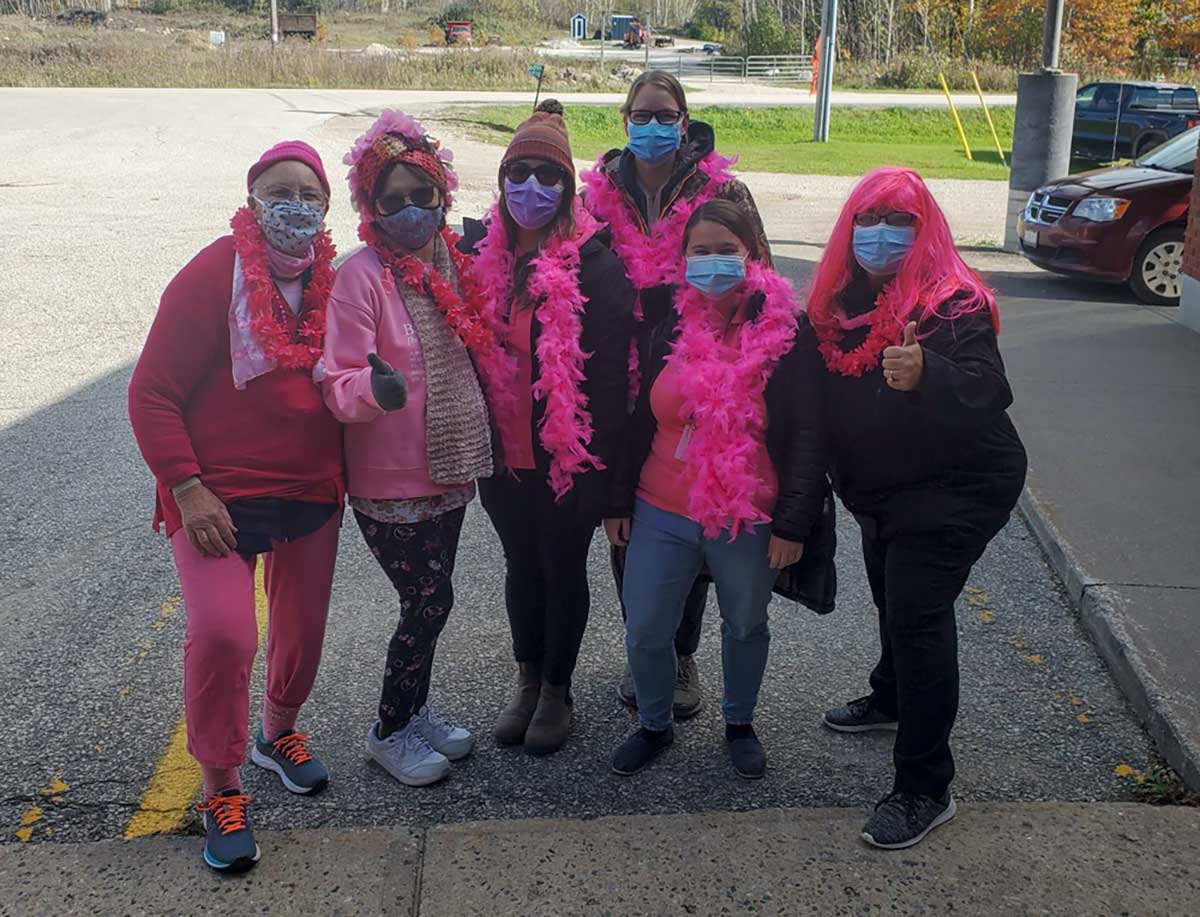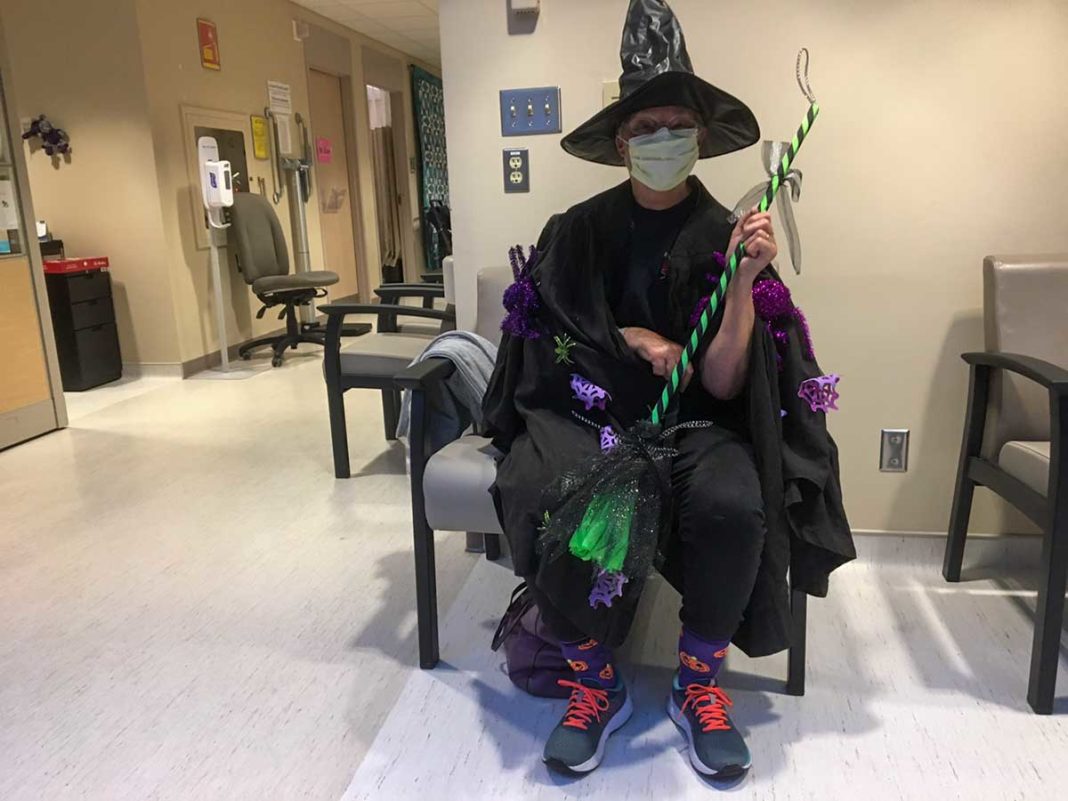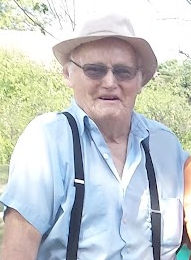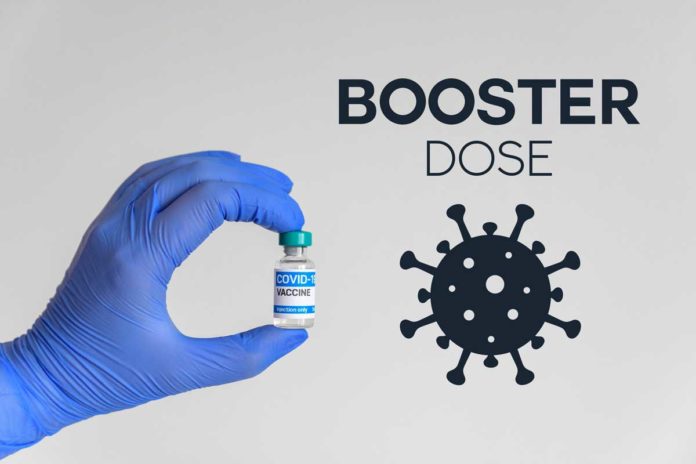EDITOR’S NOTE: In 2013, retired nurse and midwife Mary Buie approached The Expositor with a mission. She had recently been diagnosed with breast cancer and was wondering whether this newspaper would be interested in following her journey as she battled the disease. It was with some trepidation that this paper agreed as the eventual outcome was far from certain to be positive. What followed has been an engaging series that leavens a very serious health issue with Ms. Buie’s irrepressible personality. Ms. Buie recently informed The Expositor that she would once again be facing down cancer. The Expositor is continuing the series ‘Following Hope’s Path’ to continue the story of her journey.
KAGAWONG – The Expositor received an excited missive from Mary Buie this past week with some positive news: Ms. Buie has been selected for an experimental cancer treatment program. The retired, and seemingly tireless nurse and midwife, sat down with this reporter to chat about recent developments in her cancer odyssey.
When last we spoke, things were definitely not looking up. Her cancer had proven resistant to the latest rounds of treatment and Ms. Buie seemed to be out of options. When she received her latest results from the Mindemoya Family Health Team, it was clear her uninvited cancer proved resistant to treatment.
“We can get our reports from our health team,” said Ms. Buie. “I always get mine.” The retired nurse is in something of a privileged position in that regard, as her long career in health care makes deciphering those results easier than it might otherwise prove to be. Those results showed there was still a patch of cancer in one of her lungs and the pernicious aggressive cancer remained in one of her bones.
The normally irrepressible Mary Buie found herself uncharacteristically down in the dumps.
“I found myself thinking of mortality,” she said. “Will I be around next year? It was a feeling I hadn’t felt since my cancer first appeared 12 years ago.”
Faced with the very real prospect of dying, Ms. Buie confessed her greatest fear. “I really want to see my grandchildren grow up,” she said.
Despite having beaten cancer once, this time things were very different. The news from her oncologist was dire. “They can’t do radiation on the cancer in my lung,” she said. “It is too close to my heart.” Ms. Buie’s thoughts strayed to how her family, especially her husband, would cope with her no longer being there for them.
Then came the phone call from University Health Network (UHN) in Toronto.
It seems being in her position opened up another door for Ms. Buie in her battle against cancer. There are possibilities to participate in experimental programs through the UHN. After filling out numerous forms and submitting her vital statistics, Ms. Buie was informed that she was to be admitted into an experimental trial.
UNH encompasses the Toronto General and Toronto Western hospitals, the Princess Margaret Cancer Centre, Toronto Rehabilitation Institute and The Michener Institute of Education at UHN. According to the UHN website, the scope of research and complexity of cases at UHN has made UHN “a national and international source for discovery, education and patient care.”
UHN has the largest hospital-based research program in Canada, “with major research in cardiology, transplantation, neurosciences, oncology, surgical innovation, infectious diseases, genomic medicine and rehabilitation medicine.”
“Dr. McConnell had said the trial might be appropriate,” said Ms. Buie. The researchers at UHN apparently agreed with her oncologist. “She said she always gets asked for people who might fit the criteria.”
The program she will be enrolled in is specifically for people whose cancer has metastasized, spread beyond the original site of the disease.
“I am so excited,” said Ms. Buie. “The trial is specifically for triple negative breast cancer.”
Being diagnosed with any type of cancer is terrifying, she explained, but a triple negative breast cancer diagnosis is exceptionally scary because it is more aggressive with a poorer prognosis than many other types. Also, unlike other breast cancers, when you are done treatment there is nothing left to take or do to reduce your risk of a recurrence and that leaves some people feeling powerless. Powerless is not in Ms. Buie’s vocabulary.
The treatment regime involves no surgery, radiation or other invasive and destructive therapies. Instead, over the six months of the trial, Ms. Buie will be taking a daily dose, aka one pill, of AMG650. She will be joining 140 other participants in the study over the next half year.
“I am one of eight participants with the UHN,” said Ms. Buie. “I go for a whole battery of tests next week.”
Ms. Buie is now neck deep in the logistics of travelling to southern Ontario for extended periods of time. “By the end of November, I will be in the trial,” she said. “I will stay in Toronto, close to the hospital, for 28 days.”

A family conference was held by Zoom. “We have a lot of things to work out,” said Ms. Buie. Not least of which is the trip down to the Big Smoke. Luckily, her son Neil lives in Corbiel while Rob is in Lindsey. “They will relay me down,” laughed Ms. Buie. “We are going to make it happen.”
Through the trials, the medical researchers hope to discover the best case dosages and what side effects can be expected.
“It’s exciting,” said Ms. Buie. “I feel like I have a new lease on life.”
Being able to take part in research is especially gratifying for Ms. Buie. “I love research,” she said. “I love being involved.”
One of the things about triple negative breast cancer is that each case is different from the others. “My journey through triple negative is different than other people’s,” said Ms. Buie. She credits her career as a registered nurse and that she has kept herself healthy for much of that.
She said she knows that her red and white blood cells will soon be taking another beat down, but her faith in prayer and God, and the amazing support she has received from her prayer group, have been sustaining.
Ms. Buie said the most difficult time comes in the depths of the night. “When you receive bad news, you are thinking of your family. We don’t physically want to die because you want to know how things develop with your grandchildren. You have a conversation with God, ‘God where are you?’,” she said. “Nothing happens. Then all of a sudden God provides an answer.”





